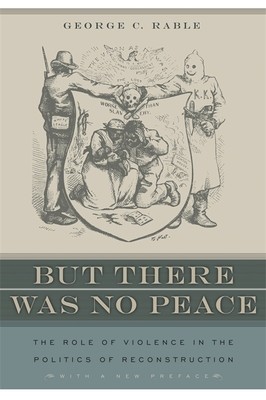
- We will send in 10–14 business days.
- Author: George C Rable
- Publisher: University of Georgia Press
- Year: 2007
- Pages: 272
- ISBN-10: 0820330116
- ISBN-13: 9780820330112
- Format: 15.6 x 23.4 x 1.5 cm, softcover
- Language: English
- SAVE -10% with code: EXTRA
Reviews
Description
This is a comprehensive examination of the use of violence by conservative southerners in the post-Civil War South to subvert Federal Reconstruction policies, overthrow Republican state governments, restore Democratic power, and reestablish white racial hegemony. Historians have often stressed the limited and even conservative nature of Federal policy in the Reconstruction South. However, George C. Rable argues, white southerners saw the intent and the results of that policy as revolutionary. Violence therefore became a counterrevolutionary instrument, placing the South in a pattern familiar to students of world revolution.
EXTRA 10 % discount with code: EXTRA
The promotion ends in 19d.19:31:21
The discount code is valid when purchasing from 10 €. Discounts do not stack.
- Author: George C Rable
- Publisher: University of Georgia Press
- Year: 2007
- Pages: 272
- ISBN-10: 0820330116
- ISBN-13: 9780820330112
- Format: 15.6 x 23.4 x 1.5 cm, softcover
- Language: English English
This is a comprehensive examination of the use of violence by conservative southerners in the post-Civil War South to subvert Federal Reconstruction policies, overthrow Republican state governments, restore Democratic power, and reestablish white racial hegemony. Historians have often stressed the limited and even conservative nature of Federal policy in the Reconstruction South. However, George C. Rable argues, white southerners saw the intent and the results of that policy as revolutionary. Violence therefore became a counterrevolutionary instrument, placing the South in a pattern familiar to students of world revolution.


Reviews